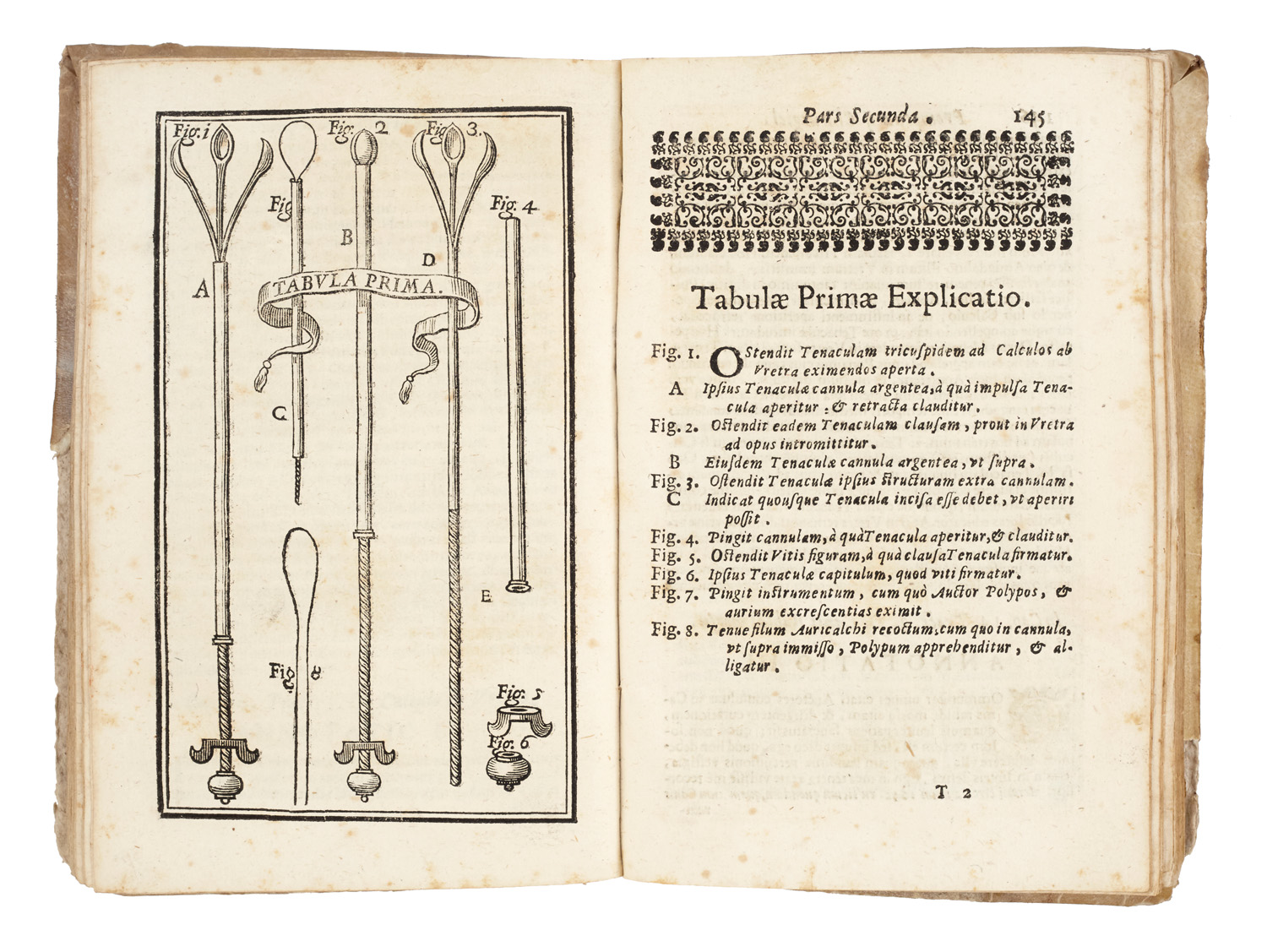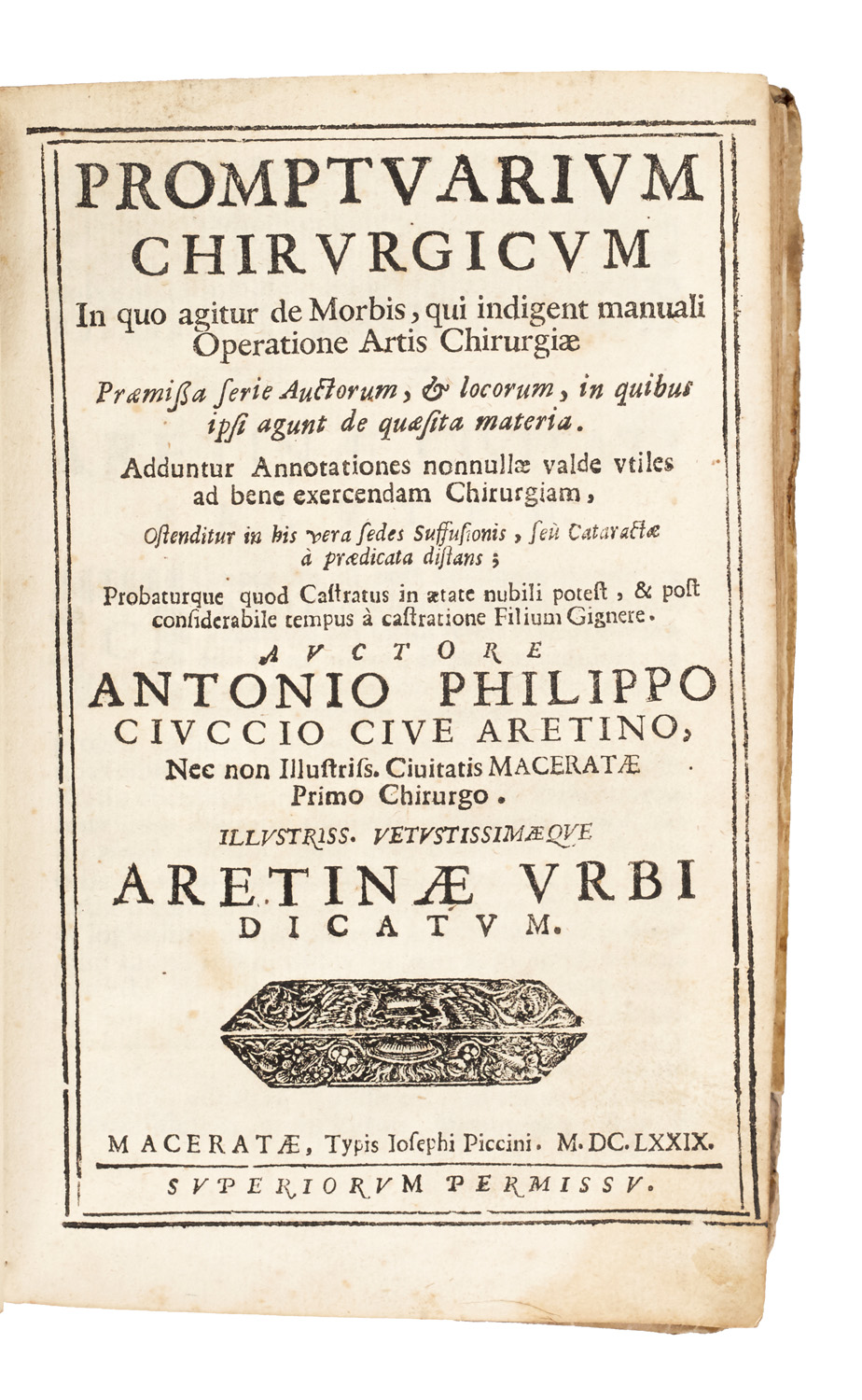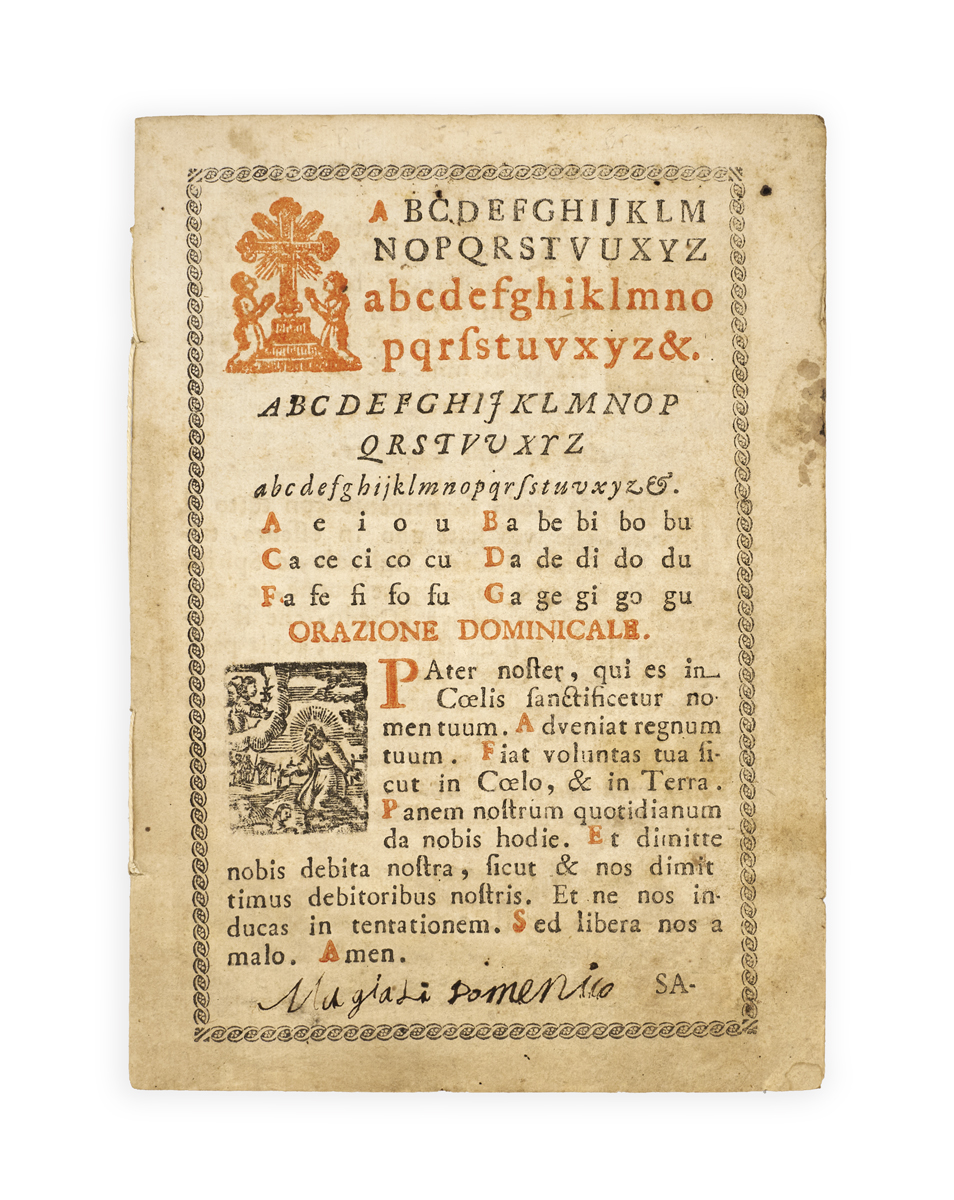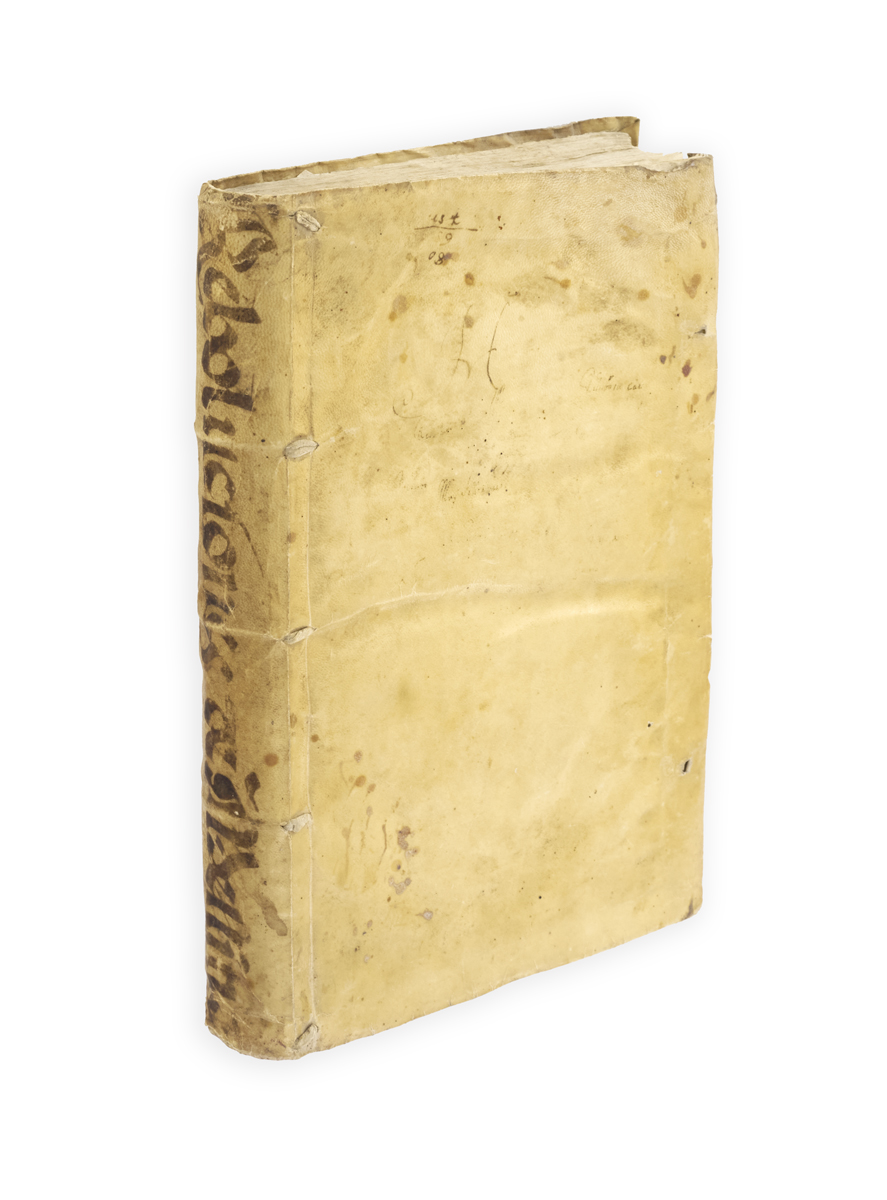

A RARE HANDBOOK OF SURGERY
CIUCCI, Antonio Filippo.
Promptuarium Chirurgicum in quo agitur de Morbis, qui indigent manuali Operatione Artis Chirurgiae.
Macerata, Joseph Piccinus, 1679–1680.
4to, two parts in one, each with own title, continuous pagination, pp. [16], 198, [4]; 6 woodcut plates; elaborate woodcut frontispiece showing the Trojan Horse; lightly foxed, but generally a good clean copy bound in contemporary vellum, author’s name in manuscript on spine; edges and corners worn.

Added to your basket:
Promptuarium Chirurgicum in quo agitur de Morbis, qui indigent manuali Operatione Artis Chirurgiae.
First edition, very rare, of this handbook of practical surgery, by the author of the first treatise of forensic medicine written in Italian.
Antonio Filippo Ciucci (first half of the seventeenth century–c. 1710) studied medicine in Florence, before moving to Rome, where he spent five years working in the lazaretto of the Casaletto. His experiences there lead him to the conviction that the plague was a contagious disease, a theory that was still very controversial at the time, and one which he discusses in both the present work and in Filo d’Arianna (1682). In 1670 Ciucci became first surgeon in Macerata and professor of anatomy at the local university, while concurrently practicing as a forensic surgeon.
This work on practical medicine, the first published by Ciucci, constitutes a guide to the nature and treatment of a wealth of common and uncommon afflictions. Divided into two parts, the first provides an alphabetical list of ailments and references to medical works in which the physician in need may find information on said condition, and covers everything from constipation, paralysis, and erections, to cleft penises, hearing loss, and earache. The second part, which is illustrated by anatomical and technical woodcuts, contains further explorations on some of the diseases listed in part one, taken from Ciucci’s own experiences. Included are diagrams on the treatment of dislocated shoulders; a blueprint of the ‘tenacula tricuspidis’, the tricuspid forceps invented by Ciucci himself, and designed to extract calculi formed in the urethra without damaging the surrounding tissue; and a proof that cataracts are caused by the clouding of the lens, and not an opacity lying between the lens and the iris, as previously assumed.
Library Hub records only one copy, at the British Library; OCLC records only three in North America (Fisher Library, Cushing/Whitney Medical Library, University of Chicago).
Bibliotheca Walleriana I, p. 97.

